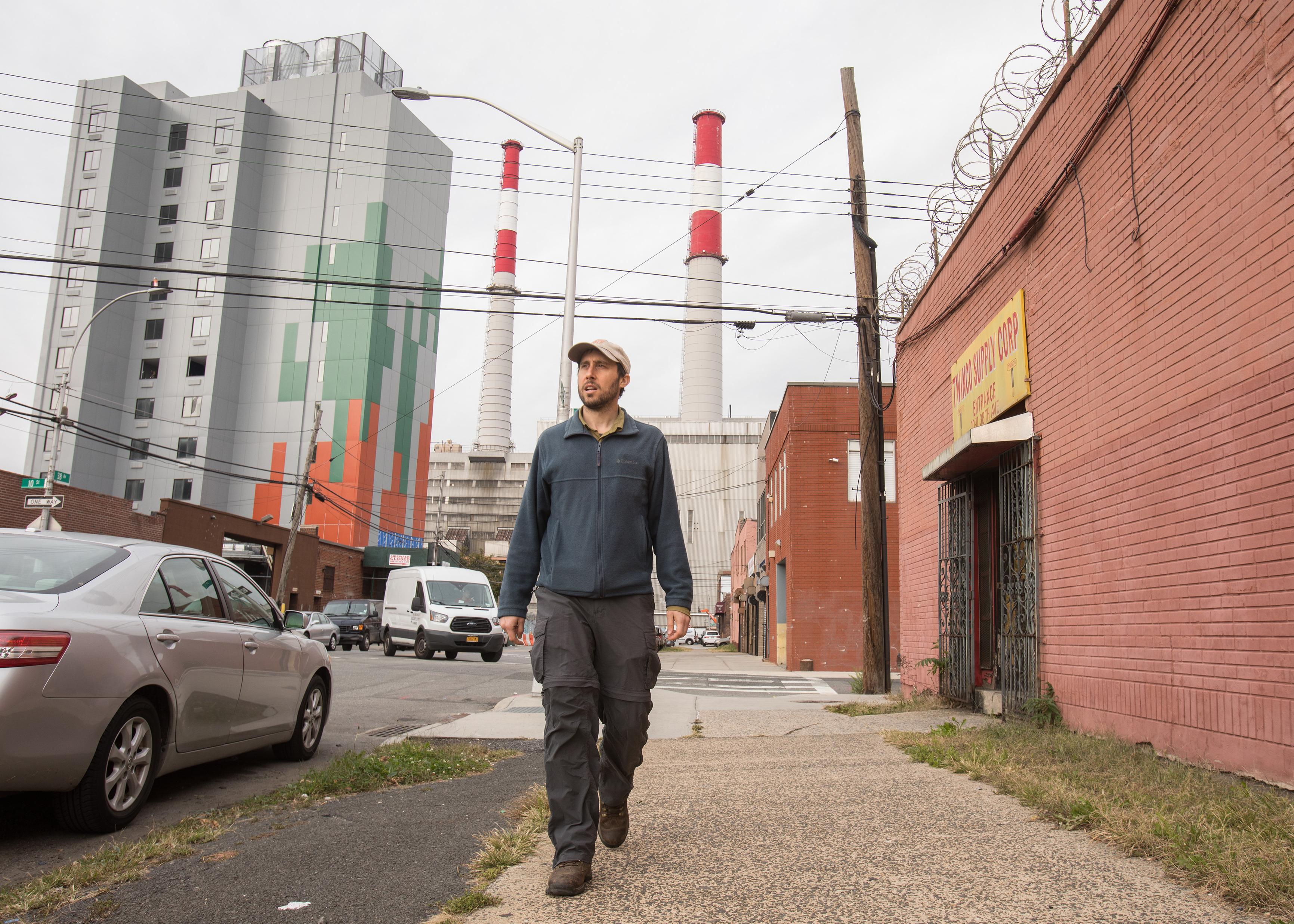The World Before Your Feet from Jeremy Workmen, follows an unemployed civil engineer, Matt Green, 37, around New York City as he walks over 8,000 miles in 6 years, traveling every street, park, and space in the five boroughs. Matt is a civil engineer who up and quit his job to walk in 2009.
It’s an interesting, if odd, way to spend time. But for Matt Green, who did the walking, he is the modern-day equivalent of Forrest Gump. Matt started his nearly OCD walking mania with a cross-country jaunt of a mere 3,500 miles, walking from Rockaway, New Jersey to Rockaway, Oregon in 2010. It took him five months.
Turns out it takes a lot longer to walk every street, alley, park, cemetery and green space in the Big Apple. Calling it “a cool way to be in a place and still moving,” Green says that he enjoys “the simple things in the middle of the country.” One other man mentioned in the documentary, Bill Helmreich, a Professor of Sociology at City College in New York City, walked all the streets of NYC, which was 6,000 miles, but Matt bested him by including all of the parks and cemeteries and green spaces, clocking in at over 8,000 miles of walking. His walk was rich with history and adventure and he was primarily greeted with friendly faces and was never mugged.
THE GOOD
If you are going to visit New York City any time soon or any time, period, this look at every possible part of the Big Apple is interesting. It will give you the added benefit of learning a lot about the history of the city.
Matt is a self-taught historian who enjoys finding out about the world before his feet that he visits. We learn, for instance, about the Vanderbilt Motor Parkway, probably the first highway for motor cars, and about the Audabon Theater, where Malcolm X was shot and killed. There is even a small street memorial to the Eric Garner death—the “I can’t breathe” victim who died while being arrested. And, in Green-Wood Cemetery in Brooklyn, we see the grave of the first soldier from Brooklyn killed in the Civil War, a 12-year old drummer boy who was killed during a training exercise.
We also get to hear some wisdom from Matt Green that we might take to heart. He quit his job as a civil engineer in 2009 and hasn’t had a job, other than cat-sitting since. (“I don’t really miss it,” he says, of not having a permanent place of his own.) He doesn’t own an apartment and gets by on about $15 a day by couch-surfing and cat-sitting.
Matt says, “There are some people out there who do things for reasons that other people just can’t understand.” He adds, slyly, “I don’t know anyone like that.” His goal, he says, is to do the thing, not to finish. “It’s a mission. A personal quest…It’s helped me find satisfaction in the basic things of life that are free.”
When we search for motives that may have propelled him into this nomadic life style, we need look no further than the near-fatal brain bleed his younger brother in Chicago (Jonathan) endured, and the accident he suffered when hit by a car while bike-riding. When asked if he is “independently wealthy,” he replies, “No, I’m independently homeless.” Says Matt: “Either you love it or you put it off till the future, and you don’t know if the future is gonna’ be there.”
THE BAD
Although we meet both of Matt’s parents during the film, and they seem very normal, as does his Midwestern home, we meet two women he was serious about whom he ultimately did not marry. In one case, Carolyn Brooklyn-Small said the wedding invitations were all ready to go on October 7, 2007, and then they just did not go through with it. Another pretty girl describes Matt’s aversion to the movies as a turn-off that broke them up as a couple. Matt is 37 and he has no family of his own and seems too dedicated to walking to think about forming one.
The film was a bit too long. About 75 minutes in, I was ready to stop, but the film continued to 92 minute. I think the failing was me, not the film’s; I was watching it on a computer screen.
THE SCORE
The old time-y piano music (an original score from Tom Rosenthal) with contributions from Carly Comando fits the documentary perfectly.
It’s a lovely piece about a 37-year-old man-child whose journey was even chronicled by the New York Times. He also has websites: www.Imjustwalkin.com and www.TheWorldBeforeYourFeet.com.




















